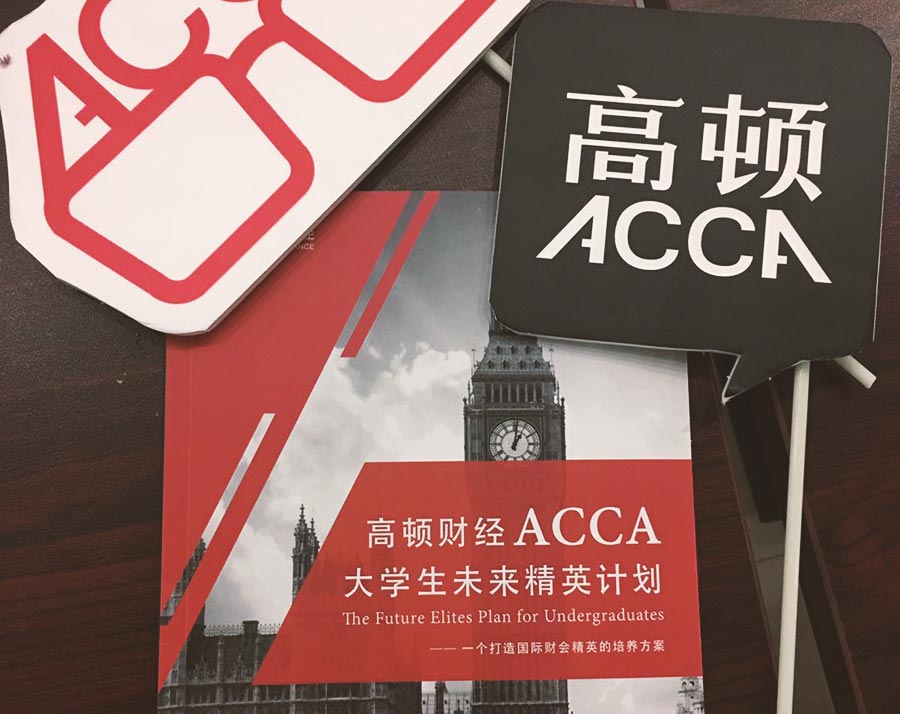
acca f1知识点整理及易错题分析
- 2019年05月16日
- 11:41
- 来源:高顿财经ACCA
- 阅读:(163)
2022ACCA备考资料
- 财务英语入门
- 历年考题答案
- 2022考纲白皮书
- 2022考前冲刺资料
- 高顿内部名师讲义
- 高顿内部在线题库
摘要:其实F1阶段的考试只需要总结归纳,记忆就可以了。F1考试没什么难的,题目都是概念性的,所以这也就决定了想要通过F1考试,很大程度上得靠背,船到桥...
其实F1阶段的考试只需要总结归纳,记忆就可以了。F1考试没什么难的,题目都是概念性的,所以这也就决定了想要通过F1考试,很大程度上得靠“背”,船到桥头自然直,背着背着就会了。这是一篇诚意满满的F1考试重点归纳及易错点分享,花10分钟看完它,考试多得10分也不是没可能。如果看完之后你觉得没什么卵用,那恭喜你同学,你在学霸的路上又晋级了。再送大家一个2019ACCA资料包,可以分享给小伙伴,自提,戳:ACCA资料【新手指南】+内部讲义+解析音频
Mendelow:
Mendelow’s Matrix:Stakeholders&Power VS Interest
Hight power&high interest:key players
Hight power&low interest:keep satisfied
Low power&high interest:keep informed
Low power&low interest:minimal efforts
Anthony:
Planning Level:Hierarchy层级(管理层)——STO
战略(Strategic)规划(高级管理层:处理长期规划;关心公司发展方向、政策制定、危机处理)
战术(Tactical)决策(中层******:每年具体目标制定;关心如何达到企业目标的方法、资源的合理配置、创新)
经营(Operational)管理(车间小组长:监管并参与实际生产;制定日常活动计划)
Porter:
价值链value chain
支持活动:基础设施、IT、HR、采购、财务
主要活动:进料inbound(receiving、warehousing、distribution)、加工(transforming)、给到客户(warehousing/distribution of finished goods)、市场/销售、售后服务
五力竞争模型Five competence force:
Threat of new entrants新兴商品(进入市场的障碍:economices of scale规模经济、product differentiation产品区别化、good brand name&customer loyalty品牌与客户忠诚度、capital requirement资金要求、switching cost转化成本、access to distribution channels分销渠道、learning cureve advantage学习曲线优势)/substitute替代品的威胁力、customers客户/suppliers供应商的议价能力、competitive rivalry同行业的竞争力
Generic Strategies:
Cost leadership成本******:低成本生产商
Differentiation差异******:unique独一无二
Focus:cost focus只注重部分市场;分类:成本中心/differentiation focus差异中心
Schein:
Determinanta of organization culture组织文化的决定因素:
组织文化的决定性因素(三个层级)P160
第一层级:Artifacts——可看得见的部分,包括工作行为、态度
第二层级:Values&Beliefs——潜在隐藏部分,包括目标、战略
第三层级:Assumptions——很难感受到,包括想法、感受
Handy:
Organization culture组织文化的分类:
组织文化的分类:权力型、角色型、任务型、个性型P162
权力型Power culture:保持绝对管理权;适用于简单/企业家结构组织——Zeus
角色型Role culture:按职位划分,变化/晋升缓慢;适用于官僚主义组织;适用于稳定、结构大的组织如政府机关——Apollo
任务型Task culture:注重任务完成结果的好坏、完成任务;适用于项目团队如matrix structure(短期、一次性),根据结果——Athena
个性型Person culture:满足某一个体的要求;适用于——Dionysus
Hofstede:
International culture国际文化五大差异维度:
权力距离power distance:上下级之间的关系(中方比较大,西方比较小)
个人主义&集体主义individualism&collectivism:中国崇尚集体、西方注重个人
男性化&女性化社会*masculinity&femininity:男性与女性之间的区别
低不确定性&高不确定性规避:uncertainty avoidance
短期取向&长期取向:Long&short term orientation
Leader VS Manager区别:Kotter&Bennis
Kotter:
管理Mngt应对复杂(Complexity—process&structure、analysis&control)情况,******Leadership应付变化(change)
Bennis:
管理Mngt注重内控系统(system)和短期short term,******注重人们(people)和长期long term
管理学代表人物及理论内容:
Scientific/classical theory of management科学管理——Fayol,Taylor
The human relations school人际关系学说——Mayo
Functions of a manager管理者的职能——Mintzber Drucker
Fayol:管理五大职能:five functions of management—POCCC
Planning(determine objectives、strategies、policies、programmes&procedures for achieving the objective、the org&sub-units确定发展目标、策略、流程等)
Organizing(establish structure of task、delegate authority to carry out tasks、providing systems of inf.&communication for co-ordination of activities建立组织结构、下放权力)
Commanding(giving instructions下达命令)
Coordinating(harmonizing the goals and activities of individuals and groups within the organization个人目标与组织目标相统一)
Controlling(measuring&correcting评估和纠正)
后人/现代管理学增加两点:Motivating(激励)、Communicating(沟通)
Taylor:
科学管理:现代科学管理之父、科学管理的原理(4个)和方法(4个)、计件工资piecework Principles科学管理的原理:
The development of true science of work发展真正的科学(收集所有知识并明细化分)The scientific selection&progressive development of workers科学挑选员工并培训(提供最合适的工作)
The applications of techniques to plan制定科学的工作方法(评估并控制工作、为了******产能)
The constant&intimate co-operation员工和管理层的合作
Techniques科学管理的方法:
Work study techniques研究工作方法(分析任务、找出最有效的方法、不准出错)Planning&doing were separated规划人和实施者分离
Jobs were micro-designed工作分解详细(简单、单一的任务)
Workers were paid incentives员工薪水(激励作用)
Mayo
Human Relation School人际关系学说:注重social relationships
Hawthorne实验(宣泄效应、发泄不满、与******层沟通交流—心情变得舒畅也感觉到了管理层的关心、生产效率提高)
Marslow,Hertzberg
后人际关系学说(Neo-human relations)
——an open,dynamic organism with human psychological needs of growth,challenge,responsibility and fulfillment岗位中强调成长、责任感、成就感也能带来绩效的上升。
Mendelow:
Mendelow’s Matrix:Stakeholders&Power VS Interest
Hight power&high interest:key players
Hight power&low interest:keep satisfied
Low power&high interest:keep informed
Low power&low interest:minimal efforts
Anthony:
Planning Level:Hierarchy层级(管理层)——STO
战略(Strategic)规划(高级管理层:处理长期规划;关心公司发展方向、政策制定、危机处理)
战术(Tactical)决策(中层******:每年具体目标制定;关心如何达到企业目标的方法、资源的合理配置、创新)
经营(Operational)管理(车间小组长:监管并参与实际生产;制定日常活动计划)
Porter:
价值链value chain
支持活动:基础设施、IT、HR、采购、财务
主要活动:进料inbound(receiving、warehousing、distribution)、加工(transforming)、给到客户(warehousing/distribution of finished goods)、市场/销售、售后服务
五力竞争模型Five competence force:
Threat of new entrants新兴商品(进入市场的障碍:economices of scale规模经济、product differentiation产品区别化、good brand name&customer loyalty品牌与客户忠诚度、capital requirement资金要求、switching cost转化成本、access to distribution channels分销渠道、learning cureve advantage学习曲线优势)/substitute替代品的威胁力、customers客户/suppliers供应商的议价能力、competitive rivalry同行业的竞争力
Generic Strategies:
Cost leadership成本******:低成本生产商
Differentiation差异******:unique独一无二
Focus:cost focus只注重部分市场;分类:成本中心/differentiation focus差异中心
Schein:
Determinanta of organization culture组织文化的决定因素:
组织文化的决定性因素(三个层级)P160
第一层级:Artifacts——可看得见的部分,包括工作行为、态度
第二层级:Values&Beliefs——潜在隐藏部分,包括目标、战略
第三层级:Assumptions——很难感受到,包括想法、感受
Handy:
Organization culture组织文化的分类:
组织文化的分类:权力型、角色型、任务型、个性型P162
权力型Power culture:保持绝对管理权;适用于简单/企业家结构组织——Zeus
角色型Role culture:按职位划分,变化/晋升缓慢;适用于官僚主义组织;适用于稳定、结构大的组织如政府机关——Apollo
任务型Task culture:注重任务完成结果的好坏、完成任务;适用于项目团队如matrix structure(短期、一次性),根据结果——Athena
个性型Person culture:满足某一个体的要求;适用于——Dionysus
Hofstede:
International culture国际文化五大差异维度:
权力距离power distance:上下级之间的关系(中方比较大,西方比较小)
个人主义&集体主义individualism&collectivism:中国崇尚集体、西方注重个人
男性化&女性化社会*masculinity&femininity:男性与女性之间的区别
低不确定性&高不确定性规避:uncertainty avoidance
短期取向&长期取向:Long&short term orientation
Leader VS Manager区别:Kotter&Bennis
Kotter:
管理Mngt应对复杂(Complexity—process&structure、analysis&control)情况,******Leadership应付变化(change)
Bennis:
管理Mngt注重内控系统(system)和短期short term,******注重人们(people)和长期long term
管理学代表人物及理论内容:
Scientific/classical theory of management科学管理——Fayol,Taylor
The human relations school人际关系学说——Mayo
Functions of a manager管理者的职能——Mintzber Drucker
Fayol:管理五大职能:five functions of management—POCCC
Planning(determine objectives、strategies、policies、programmes&procedures for achieving the objective、the org&sub-units确定发展目标、策略、流程等)
Organizing(establish structure of task、delegate authority to carry out tasks、providing systems of inf.&communication for co-ordination of activities建立组织结构、下放权力)
Commanding(giving instructions下达命令)
Coordinating(harmonizing the goals and activities of individuals and groups within the organization个人目标与组织目标相统一)
Controlling(measuring&correcting评估和纠正)
后人/现代管理学增加两点:Motivating(激励)、Communicating(沟通)
Taylor:
科学管理:现代科学管理之父、科学管理的原理(4个)和方法(4个)、计件工资piecework Principles科学管理的原理:
The development of true science of work发展真正的科学(收集所有知识并明细化分)The scientific selection&progressive development of workers科学挑选员工并培训(提供最合适的工作)
The applications of techniques to plan制定科学的工作方法(评估并控制工作、为了******产能)
The constant&intimate co-operation员工和管理层的合作
Techniques科学管理的方法:
Work study techniques研究工作方法(分析任务、找出最有效的方法、不准出错)Planning&doing were separated规划人和实施者分离
Jobs were micro-designed工作分解详细(简单、单一的任务)
Workers were paid incentives员工薪水(激励作用)
Mayo
Human Relation School人际关系学说:注重social relationships
Hawthorne实验(宣泄效应、发泄不满、与******层沟通交流—心情变得舒畅也感觉到了管理层的关心、生产效率提高)
Marslow,Hertzberg
后人际关系学说(Neo-human relations)
——an open,dynamic organism with human psychological needs of growth,challenge,responsibility and fulfillment岗位中强调成长、责任感、成就感也能带来绩效的上升。
推荐:考生都在用的ACCA资料>>【领取2022ACCA完整资料】 (资料包含ACCA必考点总结,提升备考效率,加分必备)
版权声明:
1、凡本网站注明“来源高顿ACCA”或“来源高顿、ACCA学习帮”,的所有作品,均为本网站合法拥有版权的作品,未经本网站授权,任何媒体、网站、个人不得转载、链接、转帖或以其他方式使用。
2、经本网站合法授权的,应在授权范围内使用,且使用时必须注明“来源高顿ACCA”或“来源高顿、ACCA学习帮”,并不得对作品中出现的“高顿”字样进行删减、替换等。违反上述声明者,本网站将依法追究其法律责任。
3、本网站的部分资料转载自互联网,均尽力标明作者和出处。本网站转载的目的在于传递更多信息,并不意味着赞同其观点或证实其描述,本网站不对其真实性负责。
4、如您认为本网站刊载作品涉及版权等问题,请与本网站联系(邮箱fawu@gaodun.com,电话:021-31587497),本网站核实确认后会尽快予以处理。
分享到:
急速通关计划
ACCA全球私播课
大学生雇主直通车计划
周末面授班
寒暑假冲刺班
其他课程
- 上一篇:acca f2知识点归纳总结
- 网站首页 返回栏目
- 下一篇:acca f3复习方法经验分享
报考指南
2022年ACCA备考机经
价值1288元 考试必备资料 免费领取 高顿ACCA研究院******出品
价值1288元 考试必备资料 免费领取 高顿ACCA研究院******出品
领取ACCA资料包
大家都在看
-
阅读(200)
-
阅读(200)
-
阅读(200)
-
阅读(200)
-
阅读(200)
-
ACCA考试热门词
-
ACCA内部备考资料高顿ACCA为您免费提供2022年全新ACCA资料,包括历年考题、考官报考、考官文章、考纲解析、学霸笔记、内部讲义等,同时还助您了解新学员报名注册指南、机考报考考试引导、OBU&UOL申请攻略等,点击免费获取。
-
- ACCA常见问题
- ACCA推荐阅读
- ACCA考试资讯
- ACCA原创文章
- ACCA学霸分享
- ACCA常见问答










